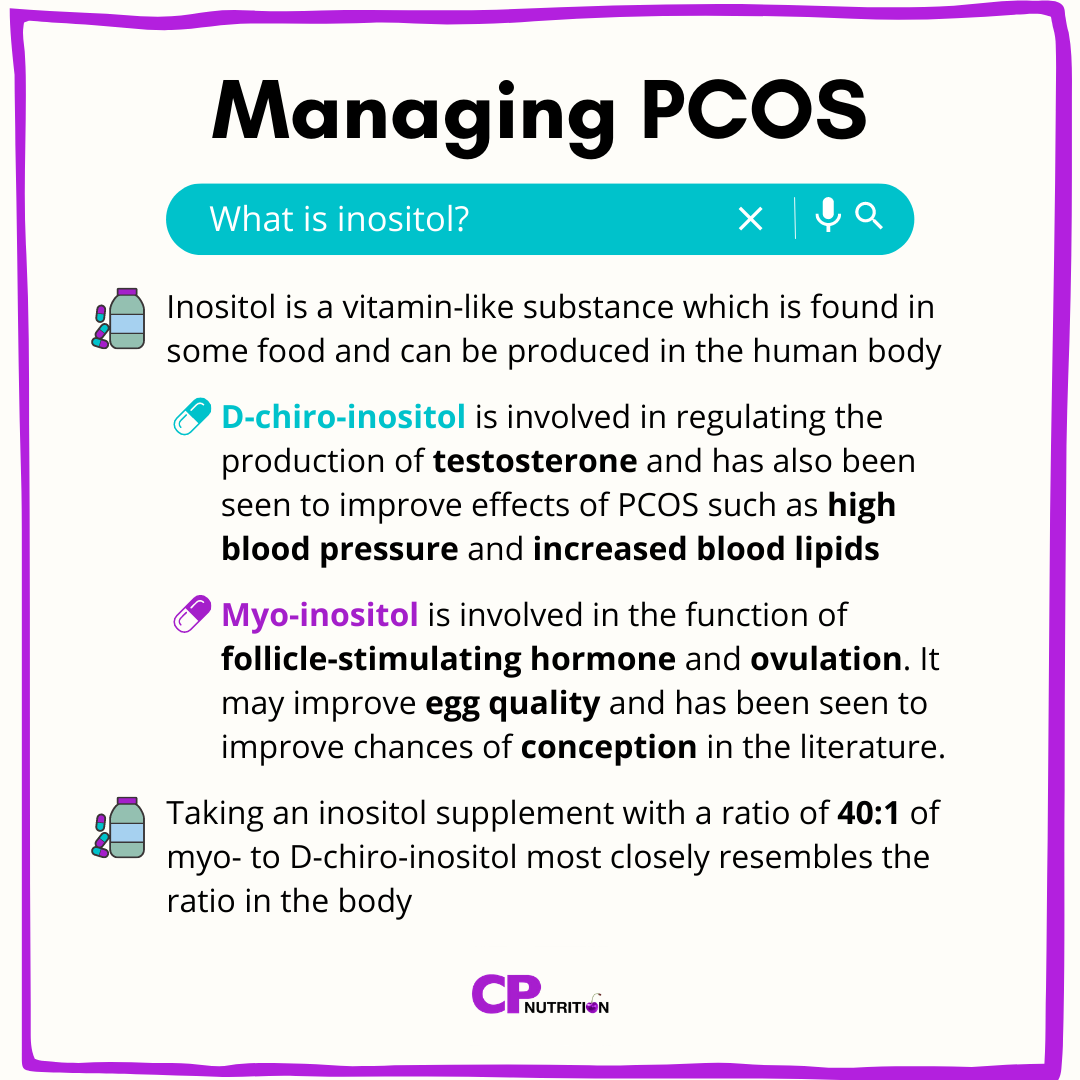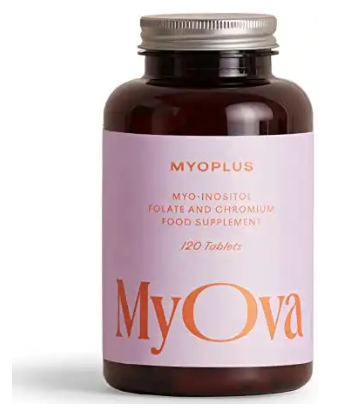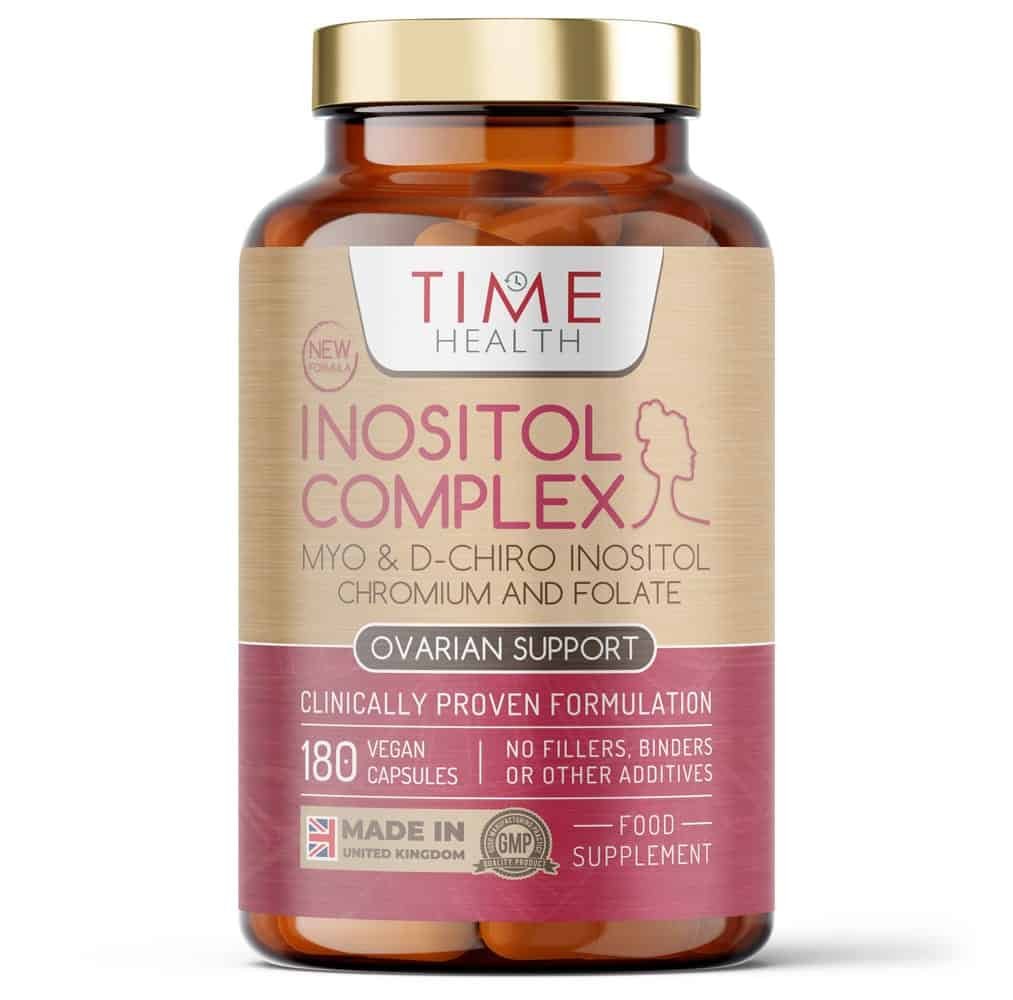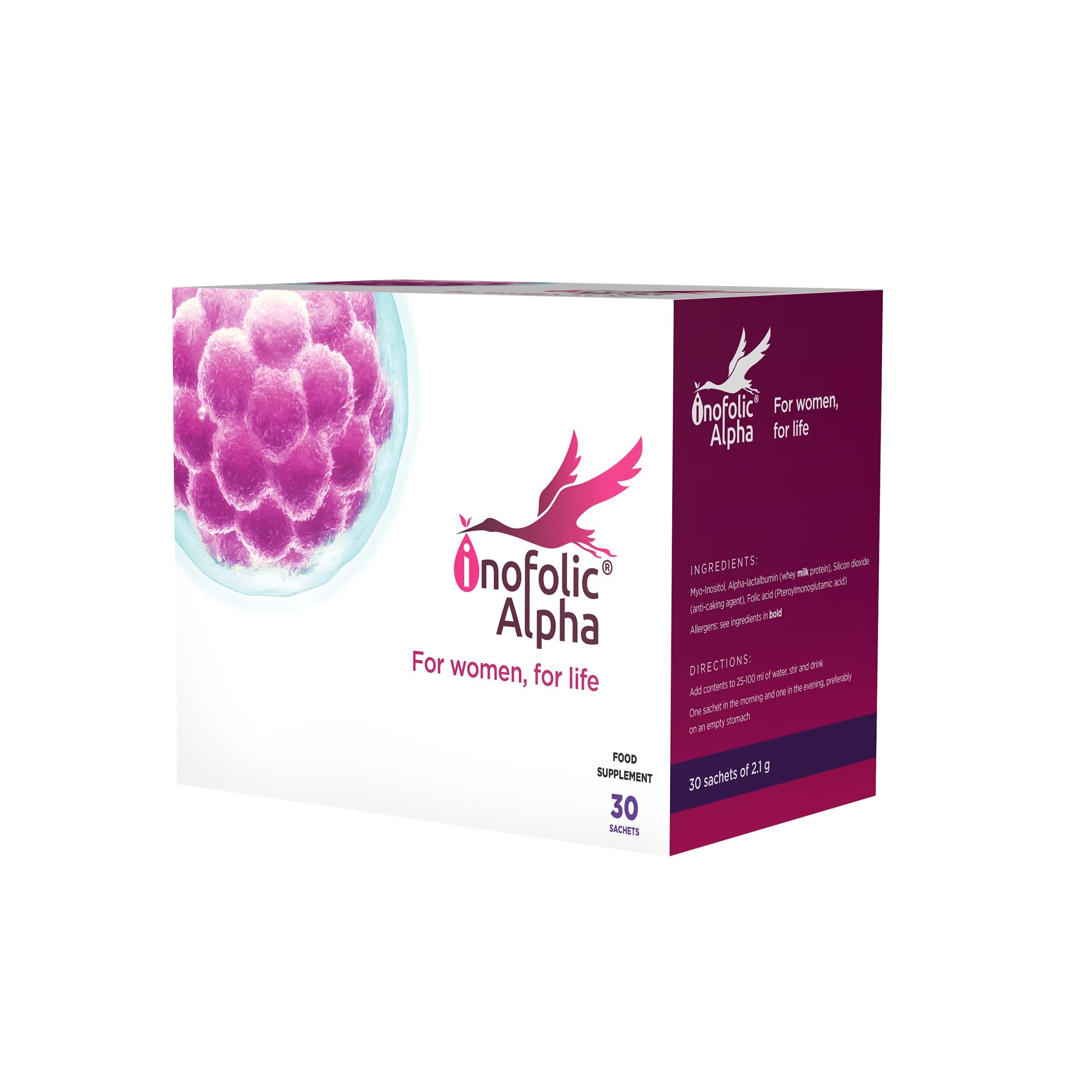Do I need to Supplement with Inositol for PCOS?
PCOS is a common endocrine disorder with reproductive and metabolic consequences which impacts 1 in 10 people with ovaries in the UK. Symptoms of PCOS include acne, oily skin, hair loss, excessive hair growth, irregular periods, infertility and weight gain.
If you have PCOS then you may be overwhelmed with the choice of supplements out there which claim to help manage your symptoms and you may have heard of the supplement inositol and wondered if it could work for you. Before you start spending your money on any old product it is important to understand what is inositol, how can inositol help PCOS and how does it fit with your PCOS presentation. We explore all this and more below.
What is Inositol?
Inositol is a vitamin-like substance that is found in fruits and beans and is naturally made by the body from glucose, with the kidneys making about 2g per day. There are many forms of inositols, all of which belong to the vitamin B complex group, and of these there are two types of inositol that are of particular interest to people with PCOS, myo-inositol and d-chiro-inositol.
Inositol as an Insulin Sensitizer
Inositol is an intracellular messenger involved in insulin signalling. Both types of inositol are involved in the metabolism of carbohydrates within the body and increase the effectiveness of insulin to move glucose from the blood into the cells - improving blood glucose levels. Considering that up to 95% of people with PCOS are estimated to have insulin resistance, improving the efficacy of glucose entering the cells can help with carbohydrate cravings, feeling fatigued and have a knock-on effect on testosterone levels (1).
Other Functions of Inositols
Inositols positively influence menstrual cycle regularity, carbohydrate metabolism, and the clinical and biochemical signs of hyperandrogenism (e.g., free testosterone, total testosterone, SHBG).
D-chiro-inositol is involved in regulating testosterone production and reduces the risk of metabolic diseases such as high blood pressure and increased blood lipids. Myo-inositol is involved in the function of follicle-stimulating hormone and ovulation. It has also been seen in some studies to improve egg quality and increase the chance of conception (2,3).
Inositol and PCOS
A meta-analysis analysed nine randomised controlled trials investigating the effects of inositol found that supplementing with inositol decreased fasting insulin, testosterone concentration and serum SHBG (4). We require more long-term trials to determine the efficacy of inositol for PCOS but the current evidence is promising.
Choosing an Inositol Supplement
When looking for an inositol supplement, current research suggests supplementing inositol in a 40:1 ratio of myo-inositol to D-chiro-inositol is the most effective dosage (3). Most studies showing beneficial effects have used a dose of between 2000mg to 4000mg per day, taken in 2 doses - one in the morning and one in the evening.
Potential Side Effects
As with any supplement, it is important to understand the potential side effects before starting a supplement regime. Inositol may cause some side effects including nausea, flatulence and diarrhoea, however these are very uncommon and a recent systematic review deemed inositol to be a safe and effective treatment in PCOS (5).
Inositol Products Available in the UK
Below are some products available in the UK, some of which have the 40:1 ratio, and some of which contain just myoinositol, others have other nutrients added such as chromium picolinate, and folate.
You can get 15% when you purchase products from MyOva by using the discount code CPNutrition15 * or from Time Health by using the discount code claire15 *
*Please note that using these codes we earn a small commission from any sales made at no extra cost to you.
Inositol supplements are just one of the supplements that you may want to include in your diet. You can read more about some of the other common supplements in PCOS on the blog.
Speak to your healthcare professional if you are considering supplementing with inositol and remember that this is an experimental therapy.
References:
Calcaterra V, Verduci E, Cena H, Magenes VC, Todisco CF, Tenuta E, Gregorio C, De Giuseppe R, Bosetti A, Di Profio E, Zuccotti G. Polycystic Ovary Syndrome in Insulin-Resistant Adolescents with Obesity: The Role of Nutrition Therapy and Food Supplements as a Strategy to Protect Fertility. Nutrients. 2021 May 28;13(6):1848.
Kalra, B., Kalra, S., & Sharma, J. B. (2016). The inositols and polycystic ovary syndrome. Indian journal of endocrinology and metabolism, 20(5), 720–724. doi:10.4103/2230-8210.189231
Sortino, M. A., Salomone, S., Carruba, M. O., & Drago, F. (2017). Polycystic Ovary Syndrome: Insights into the Therapeutic Approach with Inositols. Fron- tiers in pharmacology, 8, 341. doi:10.3389/fphar.2017.00341
Unfer V, Facchinetti F, Orrù B, Giordani B, Nestler J. Myo-inositol effects in women with PCOS: a meta-analysis of randomized controlled trials. Endocr Connect. 2017;6(8):647-658. doi:10.1530/EC-17-0243
Greff, D., Juhász, A.E., Váncsa, S. et al. Inositol is an effective and safe treatment in polycystic ovary syndrome: a systematic review and meta-analysis of randomized controlled trials. Reprod Biol Endocrinol 21, 10 (2023). https://doi.org/10.1186/s12958-023-01055-z





